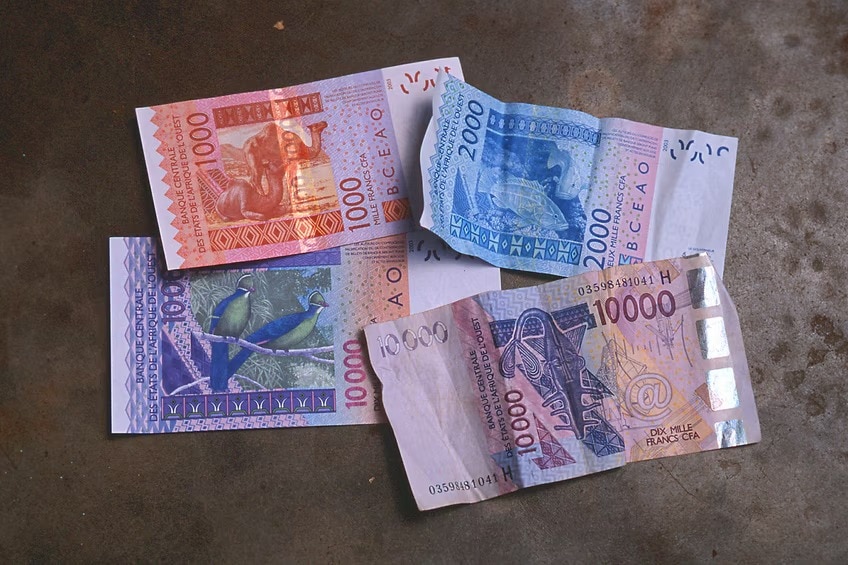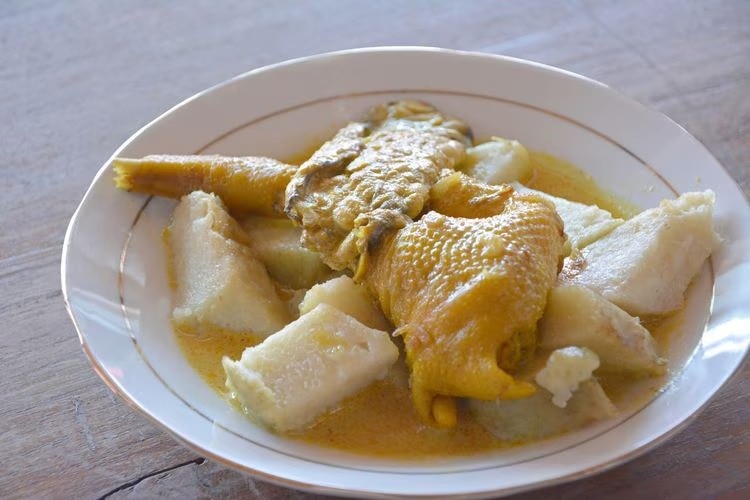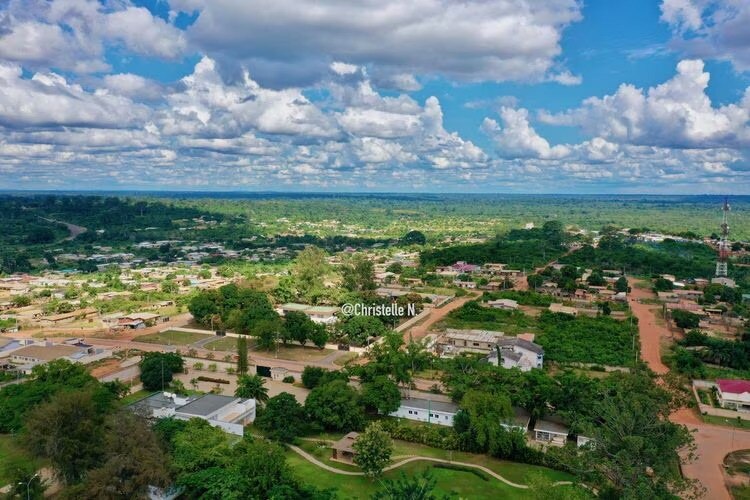Côte d’Ivoire Travel Tips and Information
Official Name
Republic of Côte d'Ivoire
Capital
Yamoussoukro
Population
Country Code
Approximately 32.2 million
CI
Country Code (international calls)
+225
The flight time to Côte d’Ivoire is approximately ---- hours. Check the climate, currency, religion, manners, other information of Côte d’Ivoire below. Wishing you pleasant travels to Côte d’Ivoire.
Côte d'Ivoire has a history of development through the ivory trade. The country’s name, which means "Ivory Coast," originates from the term "ivory."
Local Climate / Weather
Ivory Coast has a tropical climate, characterized by distinct wet and dry seasons that vary across its regions. Along the southern coast, including Abidjan, the climate is humid with two rainy seasons, one from May to July and a shorter rainy season from October to November. During these months, heavy rains can sometimes cause flooding, so travelers may want to plan accordingly. The drier months, from December to February, bring a warm and sunny climate that is ideal for visiting the country’s beaches and lush natural reserves. In the northern regions, the climate is somewhat more arid, with a single rainy season from May to September and a pronounced dry season during the rest of the year. When planning a trip to Ivory Coast, the best time to visit is generally during the dry season, particularly from November to March. The weather is more predictable, and temperatures remain warm but are moderated by the cooling influence of the Harmattan wind from the Sahara, which brings dry and pleasant air. Travelers looking to explore cities, coastal areas, and inland national parks will find these months ideal for sightseeing, beach activities, and nature excursions. The wet season, though often accompanied by higher humidity and heavy rainfall, offers a unique glimpse into the country’s rich landscapes when they’re lush and vibrant, though it may require more flexibility in travel plans. Ivory Coast is also renowned for its cultural festivals and national celebrations, which bring the country’s vibrant traditions and communities to life. The Festival of Masks in the town of Man, typically held in November, celebrates the region’s indigenous heritage with colorful masks, dancing, and drumming. Another major event is the Abissa Festival in Grand-Bassam, usually held in October, which marks the Ebrié people's New Year with dances, parades, and ceremonial gatherings. For travelers interested in immersing themselves in local culture, timing a trip around these festivals offers an enriching experience of Ivorian traditions, as communities gather to honor their customs in joyous celebration.
Currency & Tipping
Currency
The currency used in Ivory Coast is the West African CFA franc (XOF), which is shared by several countries in West Africa. Banknotes come in denominations of 500, 1,000, 2,000, 5,000, and 10,000 francs, while coins are available in smaller values, including 1, 5, 10, 25, 50, 100, 200, and 500 francs. The CFA franc is a stable currency and is pegged to the euro, making it relatively consistent in value for travelers.
Tipping
Tipping in Ivory Coast is appreciated but not obligatory, as service charges are often included in the bill at restaurants and hotels. However, if service is exceptional, leaving a small tip of around 5-10% is a nice gesture, and for hotel staff or drivers, a tip of a few hundred francs can be given directly as a sign of appreciation. This practice is widely accepted, and small tips are always well-received.
Useful Travel Information

Voltage & Electrical Outlets
In Ivory Coast, the standard voltage is 220V with a frequency of 50 Hz, and the power outlets are typically of the European type, using round two-pronged plugs (types C and E). Travelers should bring a universal adapter to ensure compatibility with their devices, especially if they plan to use electronics frequently.

Internet Connectivity
The internet environment in Ivory Coast has improved in recent years, with Wi-Fi widely available in urban areas, hotels, and cafes, though speeds may vary. Mobile data is also a popular option for travelers, with local SIM cards available for purchase from major providers, allowing access to 3G and 4G networks. It’s advisable to check for coverage if planning to visit remote areas, as internet access may be limited outside major cities.
Water for Consumption (Drinking Water)
The internet environment in Ivory Coast has improved in recent years, with Wi-Fi widely available in urban areas, hotels, and cafes, though speeds may vary. Mobile data is also a popular option for travelers, with local SIM cards available for purchase from major providers, allowing access to 3G and 4G networks. It’s advisable to check for coverage if planning to visit remote areas, as internet access may be limited outside major cities.
Culture, Religion & Social Etiquette
Culture
Ivory Coast is a culturally rich country, with a diversity of ethnic groups and traditions that contribute to its vibrant social landscape. The Ivorian culture is celebrated through colorful festivals, music, and dance, with each region expressing its unique customs and artistry. Travelers will find the warm hospitality of Ivorians welcoming, as well as their communal spirit that values family and tradition.
Religion
Religion in Ivory Coast is diverse, with Islam and Christianity as the main religions practiced alongside indigenous beliefs. The northern regions are predominantly Muslim, while Christianity is more common in the south. Travelers should be mindful of religious practices, especially during Muslim or Christian holidays, as locals observe various customs and celebrations throughout the year.
Social Etiquette
Manners and social customs in Ivory Coast emphasize politeness, respect for elders, and a strong sense of community. Ivorians greet with handshakes and inquire about each other's well-being as part of their social etiquette. Visitors may find these customs familiar, but it’s also respectful to avoid discussing sensitive topics such as politics. Demonstrating an interest in Ivorian culture and respecting local customs will help travelers feel more connected and welcome.
Food Culture
Ivory Coast's food culture is a flavorful blend of African, French, and local influences, offering travelers a unique culinary experience. Ivorian cuisine is known for its rich stews, grilled meats, and a staple known as attieké, a type of fermented cassava similar to couscous. Street food is a vibrant part of everyday life, with popular dishes like aloco (fried plantains served with spicy sauce) and choukouya (grilled spiced meat) available in bustling markets and food stalls. For those looking to dine in restaurants, Abidjan offers an array of local eateries that serve traditional dishes and fresh seafood. Notable recommendations include the renowned Chez Ambroise for authentic Ivorian dishes and Restaurant Le Wafou for a taste of local cuisine with a touch of elegance. Ivory Coast’s food scene invites travelers to explore its diverse flavors and experience the country’s lively culinary traditions.
Major Tourist Attractions & UNESCO World Heritage Sites
Major Tourist Attractions
Ivory Coast offers a range of major tourist destinations that showcase its natural beauty and cultural richness, making it an exciting travel destination. The bustling city of Abidjan, known as the “Paris of West Africa,” is a must-visit for its lively markets, vibrant nightlife, and art galleries. Here, travelers can explore the Plateau district, where modern architecture meets traditional African markets. For nature lovers, a trip to Taï National Park, one of the last primary rainforests in West Africa, provides a chance to see rare wildlife, including pygmy hippos, chimpanzees, and over 200 bird species. Another popular spot is the coastal town of Grand-Bassam, where beautiful beaches and colonial architecture create a relaxing seaside escape, perfect for swimming and cultural exploration.
UNESCO World Heritage Sites
Ivory Coast is also home to several UNESCO World Heritage Sites, which preserve its unique landscapes and historical landmarks. The Historic Town of Grand-Bassam is a top destination, where visitors can wander through a well-preserved colonial district, admire French architecture, and learn about the country’s colonial past at the National Costume Museum. Another highlight is the Taï National Park, a UNESCO-listed site that protects one of the most biodiverse forests in Africa, providing an incredible experience for eco-tourism enthusiasts who want to trek through lush trails and observe unique flora and fauna. Additionally, the Comoé National Park is one of the largest protected areas in West Africa and is known for its diverse ecosystems, from savannahs to rainforests, offering opportunities for safari tours and wildlife spotting. These World Heritage Sites are an essential part of exploring the rich history and natural beauty of Ivory Coast.
Travel FAQs
What is the safety situation in Ivory Coast like? What should I be careful of?
The safety situation in Ivory Coast requires caution due to risks such as crime, terrorism, civil unrest, health concerns, and piracy. Travelers should be vigilant against violent crimes like carjacking, robbery, and home invasions, especially in certain areas.
Is English spoken in the Ivory Coast?
The official language of the Ivory Coast is French, but English may be spoken in tourist areas and hotels.
What is the best season for Ivory Coast?
We recommend avoiding the rainy season and visiting during the dry season from October to April.
What are the major cities in Ivory Coast?
Abidjan, the de facto capital, has a population of over 5 million and is one of the largest cities in Africa.
What is the most popular airport to fly to Ivory Coast?
Felix Houphouët-Boigny International Airport is a popular gateway to Ivory Coast.




